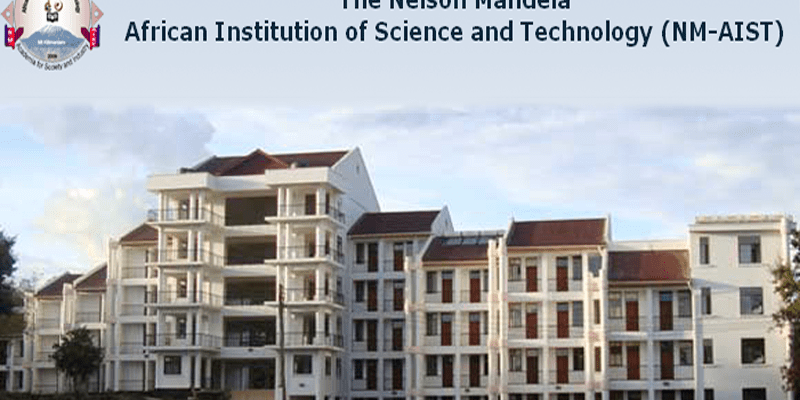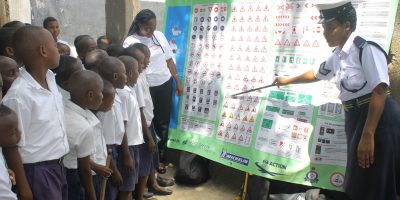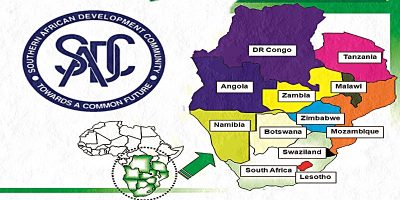The Nelson Mandela Institution of Science and Technology (NM-AIST) is taking right strides in an important and lasting impact of the African Grand Challenge (AGC).
In networking public and private partnerships that provides a foundation for a community of researchers and entrepreneurs that work towards sustainable solutions to pressing social problems.
AGC is among many NM-AIST initiatives aiming to promote and accelerate innovation in Africa.
The objectives of the NMAIST’s AGC are to innovate for Africa, collaborate and learn together and foster multi-level partnerships for sustainable futures.
NMAIST Vice-Chancellor, Prof Anthony Mshandete says the institution brings together students who are interested in the application of science and technology research to critical problems in Africa.
It is under such background they organized the fourth AGC at its campus, bringing together teams of four students each from different African countries.
It is hoped that it is one of many such events that stimulate creative problem-solving in a way that leads to increases in product and service innovations; innovations that foster new companies, new jobs, and ultimately enhance the quality of life in Africa.
The AGC is designed to promote a collaborative learning experience in which participating students, universities and local and international companies collaborate and learn from each other.
This year’s chapter has seen Tanzanian students from NM-AIST excel, scooping the first award, leaving out other countries.
This year’s chapter was looking at how emerging technology could improve food security in Africa and its resulting impact on the health of women and their families. Chairperson of the Organising Committee of the 2019 AGC, Dr. Liliane Pasape pronounced a team of four students as overall winners in the competition that brought together teams from seven countries, hence winning a $ 5,000 award.
The team comprises Ms Christina Charles, Ms Felister Magesa, Ms Frida Nyamete and Mr Joseph Runyogote.
The panel of judges scrutinized the ideas of all top four teams of the competition and was satisfied
This year the AGC is the fourth and its focus was on a theme ‘Novel of emerging technologies to ensure food safety and the health of women and their families in Africa’.
Other teams came from Burundi’s International University of Equator (IUE); States University of Zanzibar (SUZA) and African University of Science and Technology (AUST).
Others teams are from Uganda Technology and Management University (UTAMU); Strathmore University; Carnegie Mellon University (CMU) in Rwanda while there was yet another one from NM-AIST comprised of Tanzanians while that from SUZA included students from Tanzania Mainland and Zanzibar.
The second prize of $ 3,000 went to a team from Strathmore University, Kenya; with a drone technology that uses machine learning algorithms to recognize the type of bird and thereafter apply a repellant mechanism in terms of a repulsive sound and sometimes, a specific frequency sound, which repels birds from the farms.
The third- $ 2,000 was handed into the International University of Equator with their system branded as an ‘ARC System.
An enterprise resource planning software constituted with multiple software modules that performs a number of functions such as monitoring crops selection, pests and diseases identification, treatment, gaps detection.
Notifying farmers on the growth cycle of their plants through
The fourth Prize-$ 1,000 went to SUZA team who designed a solution branded as AgriNutrix, the innovation takes agriculture as farming and business, technology, science, engineering, energy, information
It works as a package of solutions by putting people, their knowledge and information at the center of agricultural efforts by spreading it through basic feature phones and smartphones at the same time block chain through a group of databases by using machine learning and drones technology.
The NM-AIST is one in a network of Pan-African Institutions of Science and Technology located across Sub-Saharan Africa (SSA).
The institutions that are the proud brainchild of the late Nelson Mandela, envision training and developing the next generation of African scientists and engineers with a view to impacting profoundly on the continent’s development through the application of Science, Engineering, and Technology and Innovation (SETI).
The NM-AIST that is accredited by the Tanzania Commission for Universities (TCU) is being developed into a world-class research-intensive institution for postgraduate and postdocs studies and research in SETI.
The training in SETI, however, incorporates appreciable doses of relevant business studies and humanities ingredients.
Thus the training curricular also incorporate strong innovation and entrepreneurship features, and hence strong academia-industry relations are part of the NM-AIST’s development agenda.
NM-AIST’s curricular also seek to accommodate, enable, stimulate and catalyze the innovation and entrepreneurship qualities inherent in the Y-generation for the benefit of SSA’s sustainable development.
Professor Mshandete unveils that the institution and other stakeholders are impressed by the currently increasing awareness of the importance of using science, engineering, technology
He specifically talks of the Fifth Phase Government of President John Magufuli, saying it was promising to have a smooth platform for scientific research to play its role in solving African problems.
He acknowledges the enormous support from the institutional partners, particularly Merck Sharp and Dohme (MSD), the founding partner and main sponsor of AGC since 2016, Washington State University and Penn State University from the USA.
He mentioned individuals, including International Advisor of the AGC, Professor John Henderson from Boston University and Local Senior Advisor, Professor Burton Mwamila who is the current Vice-Chancellor of the St Joseph University of Tanzania and the founding Vice-Chancellor of the NMAIST.
Arumeru District Commissioner (DC), Mr. Jerry Muro is happy that NM-AIST for its tireless efforts in solving
Particularly food security and how best to improve the health of
He urges other higher learning institutions to bank on a good example as the African continent moves towards self-dependence/ knowledge economy for industrialization.
He highlights that the government wishes to see researches by professors and doctors pulled from the shelves to the local communities who, for a long time has been conducting ‘business as usual’ in agriculture and other means of production, instead of going modern.

















Comments